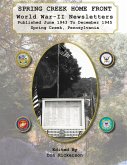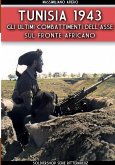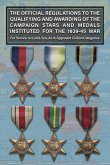The 7th came ashore at Salerno, on 15 September 1943, to help repel heavy German counterattacks during the Battle for the Salerno beachhead. Then, it drove on and took Naples. Used to fighting in the desert, the division had to adjust to the confined Italian roads. There could not have been a greater contrast to the desert. In November 1943, the division left Italy for the United Kingdom. The division was re-equipped with the new Cromwell cruiser tanks and Sherman VC Fireflies. Each troop now had three 75mm gun Cromwells and a 17-pounder gun Firefly. The Desert Rats were the only British armoured division to use the Cromwell as their main battle tank. The division landed on Gold Beach by the end of 7 June, a day after the initial landings. 7th Armoured initially took part in Operation Perch and Operation Goodwood, two operations that formed part of the Battle for Caen. Following the capture of Caen, the division took part in Operation Spring, which was intended to keep the German forces pinned to the British front away from the Americans who were launching Operation Cobra, and then Operation Bluecoat, an attack to support the American breakout and intercept German reinforcements moving to stop it. After the Battle of the Falaise Gap, which saw most of the German Army in Normandy destroyed, the 7th Armoured Division then took part in the Allied advance from Paris to the Rhine. Following the advance across France, the division took part in the Allied advance through Belgium and the Netherlands, liberating Ghent on 6 September. The division then took part in the advance to and securing of the River Maas. In January 1945 the division took part in Operation Blackcock to clear the Roer Triangle. This was followed by Operation Plunder: the 7th Armoured Division crossed the River Rhine near Xanten and Wesel and advanced north-east. On 16 April 1945, the 7th Armoured Division liberated Stalag 11B in Fallingbostel, which was the first prisoner-of-war camp to be liberated. The 7th Armoured Division's last action of the war was the battle for the German city of Hamburg. The second part of the history of 7th Armoured Division. After fighting in North Africa, the division moved to Italy in 1943 and then took part in the D-Day invasion in 1944. This is the story of the division and its operations during this period and covers operations in Italy and then in NW Europe. The book tells the story of the division in the words of its officers and men and is amply illustrated with many photographs and a set of 11 maps of the areas through which the division fought.
Hinweis: Dieser Artikel kann nur an eine deutsche Lieferadresse ausgeliefert werden.
Hinweis: Dieser Artikel kann nur an eine deutsche Lieferadresse ausgeliefert werden.








